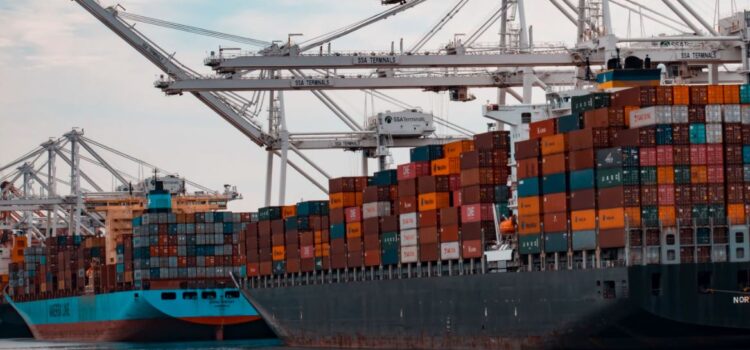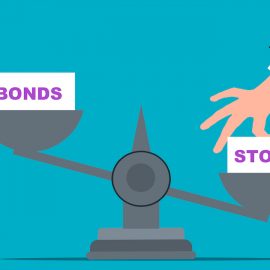

This article is an excerpt from the Shortform book guide to "The Wealth of Nations" by Adam Smith. Shortform has the world's best summaries and analyses of books you should be reading.
Like this article? Sign up for a free trial here.
Do embargoes lead to smuggling? Does trade benefit both countries? Is a trade deficit a bad thing?
Adam Smith disagrees with restricting international trade for three reasons. He argues that it incentivizes smuggling, redirects domestic capital towards inefficient industries, and prevents countries from entering into mutually beneficial trade relationships.
Continue reading for an overview of Adam Smith’s theory of international trade.
Adam Smith’s Theory of International Trade
Adam Smith’s theory of international trade is outlined in his classic work The Wealth of Nations. He explains that many governments try to grow their nation’s wealth by preventing the import of foreign goods that would out-compete domestic manufacturers. Either the country bans importing foreign goods completely (an embargo), or it imposes high taxes on the foreign goods to prevent them from being competitive in domestic markets (tariffs).
For example, let’s say it’s cheaper to produce cheese in Canada than in the US. This will allow Canadian cheese producers to offer lower prices than American cheese producers. If the US allows Canadian dairy farmers to export their cheese to the US, American customers will start buying Canadian cheese instead of American cheese to save money. This will make it harder for American cheese producers to sell their goods. So to protect the businesses of American dairy farmers, the US either bans Canadian cheese completely (an embargo) or imposes special taxes on Canadian cheese to raise its market price (a tariff).
| Unrestricted Trade Requires Strong International Relations Most economists agree with Smith’s position that unrestricted international trade benefits the countries involved by growing their economies. However, trade policies are also dependent on mutual international relationships between trading partners for two key reasons. 1. Both parties must agree to unrestricted trade. If one country agrees to lower their tariffs but the other country does not, this could benefit the industries in the country with high tariffs while harming the industries in the country without them. Therefore, countries often lower trade barriers through mutual agreements. Furthermore, when one trading partner decides to raise their trade barriers, the other country often reciprocates, instigating a “trade war.” 2. Economic concerns also intersect with national security concerns. Though Smith states that trade is mutually beneficial, he also concedes that you wouldn’t want to trade with a country with which you’re currently at war. By benefiting their economy, you’ll also be strengthening their military. Many contemporary debates about free trade between economic rivals—specifically between the US and China—revolve around whether to categorize the other country as a trade partner or as a potential threat to national security. |
Let’s take a look at the three ways Smith believes restrictions on international trade are a bad idea.
1) Restricting International Trade Incentivizes Smuggling
Smith contends that embargoes and tariffs are ineffective at achieving their goals because they create stronger incentives for smugglers trying to get around the rules. Recall that, in any market, the price is determined by the ratio of supply to demand. An embargo has the effect of drastically restricting the supply while leaving the demand unchanged.
This will drive up the price, as customers who want the illegal goods will now have to outbid each other to purchase from the diminished supply. The high prices will encourage merchants to pursue their self-interest by smuggling the tariffed or embargoed goods into the country and selling them at exorbitant prices.
(Shortform note: Smuggling poses a problem to economists as transactions are unrecorded. This can distort the data used to determine important economic metrics. Some economists estimate that America’s black market accounts for roughly 11-12% of the total GDP. Many black market transactions in the US involve evading taxes, but many also involve evading labor laws by paying workers off the books.)
2) Restricting International Trade Misdirects Domestic Capital
Smith cautions that restricting international trade will slow economic growth by redirecting capital away from efficient industries and toward inefficient ones. If it’s cheaper to produce certain goods in another country, then buying those goods from that country will cost less than manufacturing them at home. Domestic consumers and businesses can thus save money by buying these cheaper foreign imports and using their savings to invest in profitable industries at home. Those domestic producers can then put their capital into something that would be more profitable to make in their countries, thereby contributing more to national economic growth than they would have in a less profitable industry.
However, by restricting international trade, governments artificially prop up unprofitable industries while making consumers pay a higher price for the goods these industries produce. This results in lower economic growth than if the market had simply directed capital toward the most profitable domestic industries.
(Shortform note: The pros and cons of international trade continue to be widely debated. Many economists support Smith’s position that trade is a net gain for both countries. However, trade deficits have become controversial because even a policy that is a net gain for the nation may still be a loss for workers formerly employed in the sectors that had been protected by trade barriers. Even if a nation would make more total wealth by reinvesting its capital and workforce in a more profitable industry, not all workers may have the skills to smoothly transition to work in those industries. Therefore, some economists recommend that countries need to pair free-trade agreements with programs to train workers and help them relocate to new industries.)
3) Restricting International Trade Prevents Growth for Both Countries
Lastly, Smith explains that restricting trade prevents opportunities for both the importing and exporting countries to grow their economies. Recall that the size of the market enables greater specialization of labor. Workers can devote more of their time to focusing on a single task if they have access to the customer base and the supplies to support high levels of production. Thus, by trading with each other, countries are able to access larger markets, supporting greater specialization of labor in each country. Smith also contends that countries don’t “lose” money by buying more goods from another country than they sell to that same country. Money traded for imports is still exchanged for goods, which also add to the nation’s overall wealth.
| Are Trade Deficits a Problem? Economists and policymakers continue to debate the pros and cons of running a trade deficit. Those in favor of trade deficits argue that they are actually a sign of a strong economy: Countries can only import a lot of goods if they have the wealth to purchase them, and therefore wealthier countries can afford to import more than they export. Furthermore, economist Stephanie Kelton (The Deficit Myth) asserts that America’s trade deficit is merely the result of a strong currency: Other countries seek out US dollars in exchange for their goods because the US dollar has a high exchange value. This puts the US in a strong position, as the US is the sole supplier of this currency. However, critics worry about the long-term effects of trade deficits. Some maintain that countries that export more goods and import more currency may use their excess wealth to buy up assets in other countries, monopolizing industries and gaining economic leverage in international relations. Others have pointed out specific circumstances in which trade deficits have harmed countries with smaller economies. For example, an over-dependence on outside capital can leave a country vulnerable to sudden capital outflows should foreign investors rapidly sell off investments. |

———End of Preview———
Like what you just read? Read the rest of the world's best book summary and analysis of Adam Smith's "The Wealth of Nations" at Shortform.
Here's what you'll find in our full The Wealth of Nations summary:
- The 1776 classic that set the groundwork for the field of economics
- Adam Smith's ideas about markets, international trade, and government
- How governments can accidentally encourage smuggling






